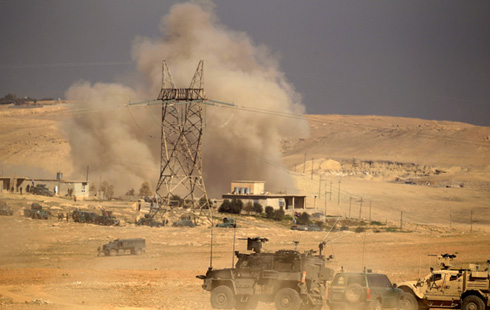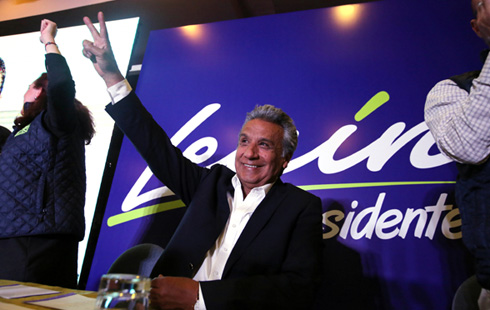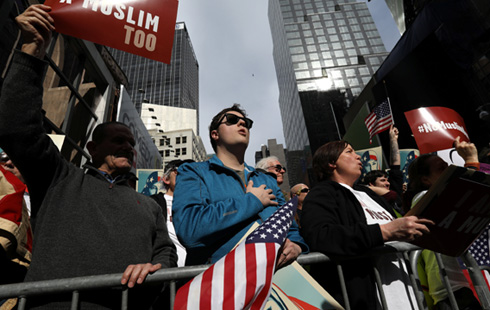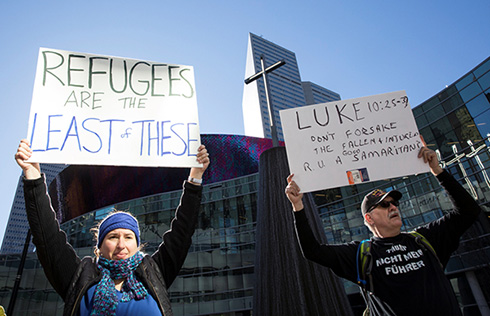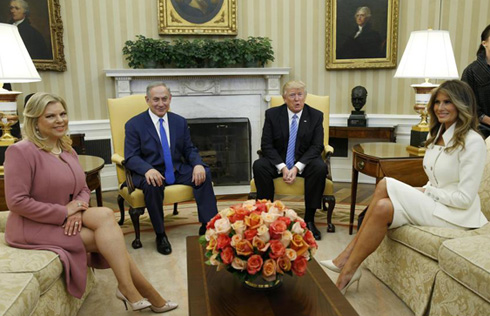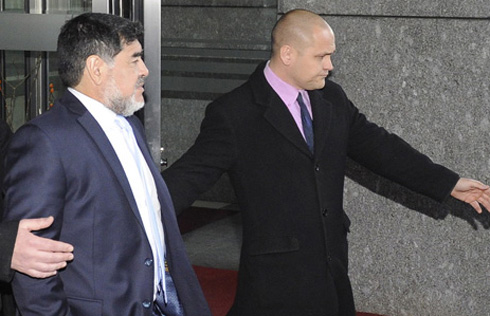Kerry reaffirms defense commitment to ROK, Japan
WASHINGTON - Secretary of State John Kerry on Tuesday reaffirmed US defense commitment to the Republic of Korea (ROK) and Japan, vowing no recognition of the Democratic People's Republic of Korea (DPRK) as a nuclear state.
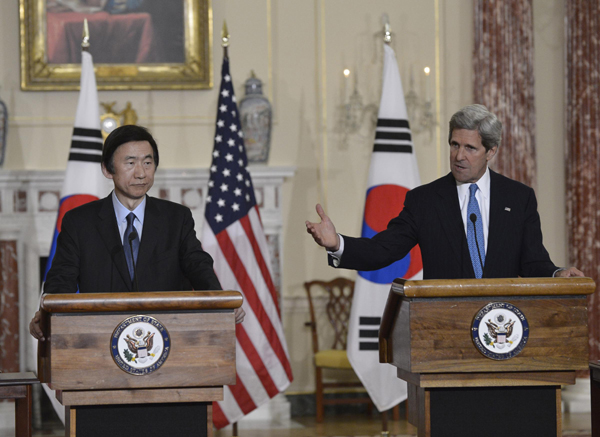 |
|
US Secretary of State John Kerry (R) and visiting ROK's Minister of Foreign Affairs and Trade Yun Byung-se attend a joint press conference at the State Department in Washington, capital of the United States, April 2, 2013. The two held their first talks on Tuesday as tensions persist on the Korean Peninsula. [Photo/Xinhua] |
"The bottom line, very simply, is that what Kim Jong-un has been choosing to do is provocative, it is dangerous, reckless and the United States will not accept the DPRK as a nuclear state," the top American envoy told reporters after meeting with his ROK counterpart Yun Byung-se at the State Department, referring to a recent series of threats made by the DPRK under the leadership of Kim.
"And I reiterate again, the United States will do what is necessary to defend ourselves and to defend our allies, Korea and Japan," Kerry said. "We are fully prepared and capable of doing so."
He described the 60-year alliance between the US and ROK as one "critical" to American engagement in Asia. "It is a linchpin of peace and stability in the region," he added.
The DPRK said on Tuesday that it has decided to restart operations at its Nyongbyon nuclear complex, including a uranium enrichment plant and a 5MW graphite moderated reactor that had been "mothballed and disabled" under an agreement reached at the six-party talks in October 2007.
Tensions have been running high on the Korean Peninsula since the DPRK conducted its third nuclear test on Feb 12 as a countermeasure against the joint military drills of the United States and the ROK.
The DPRK has also threatened to launch a preemptive nuclear strike for self-defense and unilaterally nullified the 1953 armistice that ended the Korean War.
The US Navy was moving a sea-based radar platform closer to the Korean Peninsula in order to monitor military moves of the DPRK, including possible new missile launches, CNN quoted a Pentagon official as saying on Monday.
In his remarks, Kerry also pledged to work with the ROK for better relations between the two neighbors so as to achieve their shared goal of a peaceful Korean Peninsula free of nuclear weapons.
"President (Barack) Obama has said repeatedly, we are prepared to enter into a dialogue of negotiation if they are serious, if they will stop the provocations, and engage in a serious discussion," he said.
For his part, Yun said he and Kerry agreed to further strengthen "credible and robust deterrence" in response to the DPRK's nuclear and conventional provocations.
Yun also called for "patience" in restarting the six-party talks involving the two Koreas, the US, China, Japan and Russia.
"Even though this is very difficult task, we believe that with China and with many members of the six- party talks we should continue these efforts with patience," he said.
Kerry is scheduled to visit the ROK, Japan and China starting next week, while ROK President Park Geun-hye will come to Washington in early May for a summit with Obama.





